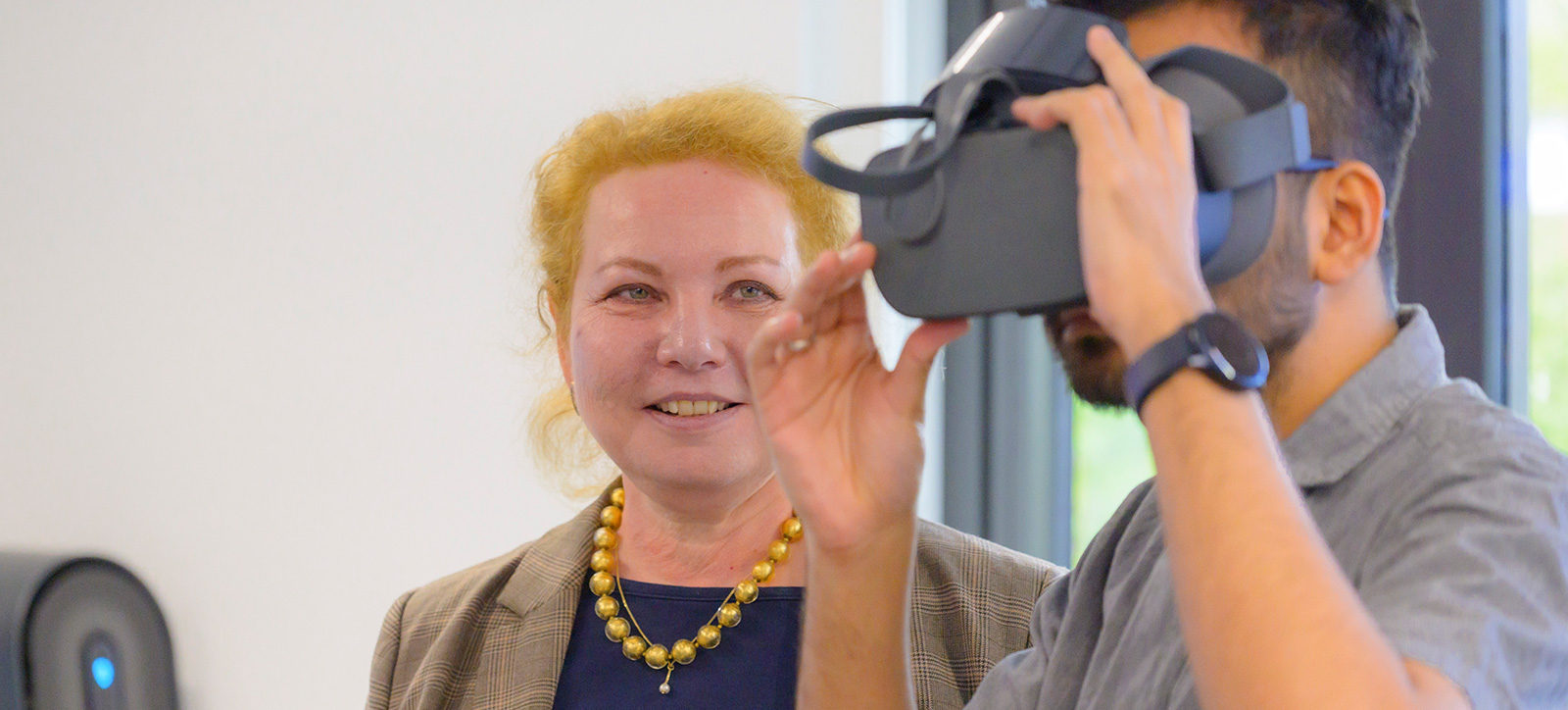
Dr Iryna Tykhomyrova from the International Management Institute in Kyiv said her experience of state-of-the-art techonology at Warwick Business School would stay with her.
Warwick Business School has welcomed the dean of a leading business school from war-torn Ukraine.
Iryna Tykhomyrova, President of the International Management Institute in Kyiv, was greeted by Andy Lockett, Dean of Warwick Business School (WBS) and Chief Operating Officer Gareth Bennett.
She was then joined by Ukrainian-born academics Professor Roman Kozhan and Dr Bo Kelestyn to tour the school’s state-of-the-art facilities, including the Gillmore Centre for Financial Technology where she saw how it is using artificial intelligence and tried its virtual reality technology.
She was also given a sneak peek of the space where WBS will create its Smart Stage enhanced reality studio to offer overseas students a more immersive educational experience in their own homes.
Professor Lockett said: “It is always a pleasure to meet Deans from other schools and share ideas for developing business education to support our students, faculty, and research.
“Iryna and her colleagues are doing a vital job in unimaginably difficult circumstances, educating the next generation of Ukrainian business leaders to rebuild the economy after the invasion. We are full of admiration for their work.”
WBS helped shape business education in Ukraine
Dr Tykhomyrova visited the UK to participate in an Association of MBAs (AMBA) accreditation panel with Alvaro de la Rica Aspiunza, Dean of Deusto Business School in Bilbao.
She was keen to visit WBS as the school hosted MIM faculty to support a project to create business education in Ukraine in the early 1990s.
Dr Tykhomyrova said: “I couldn’t miss the opportunity to visit Warwick Business School. Warwick has a reputation as one of the best business schools and played a significant role in shaping our programs and teaching methods.
“In the first days of the war, we had to suspend classes as invaders were close to Kyiv. Our institute was damaged by a Russian missile. Some of our students enlisted or joined territorial defence units and suspended their studies, but most decided to continue their education.
“Even during the war, we continue to organise company visits for our students as a useful and interesting part of the course.
“But in the Gillmore Lab, I was able to visit two companies using VR goggles. The use of augmented reality is a cutting-edge and promising element of education. It will stay with me for a long time.”




 X
X Facebook
Facebook LinkedIn
LinkedIn YouTube
YouTube Instagram
Instagram Tiktok
Tiktok